Robin Williams’ Heartwarming Contract Clause: Hiring Homeless Individuals for a Better Tomorrow
Despite facing profound loneliness and bullying during his childhood, Robin Williams grew up to be a compassionate and kind individual. As a highly successful actor and millionaire, he incorporated a unique clause in his contracts, requiring production companies to hire homeless individuals. This gesture reflected his commitment to uplifting others and addressing social issues.
Tragically, despite dedicating his life to bringing joy to others, Williams battled acute depression and anxiety. His struggles with mental health ultimately led to his untimely death.
Robin Williams, renowned for his exceptional improvisational skills and versatile performances, was celebrated as one of the greatest comedians in history. Despite his comedic brilliance, he carried the weight of personal challenges, including a family history of alcoholism.
His father, a Ford executive, and his mother, a socialite, provided him with a wealthy upbringing. However, the shadow of alcoholism loomed over his life, becoming a significant aspect of his personal journey.
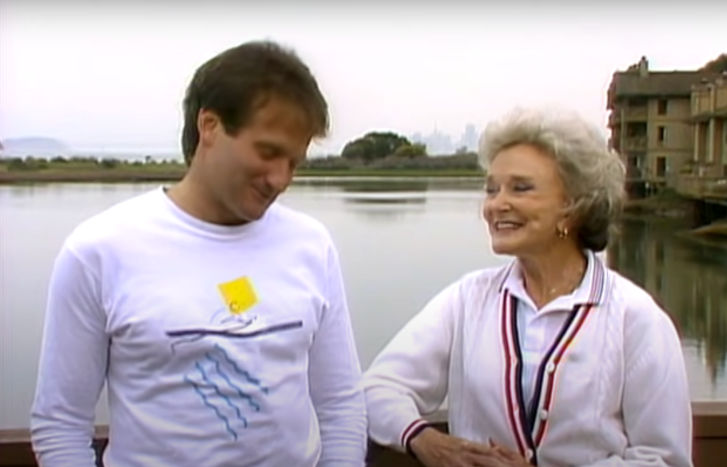
Despite the appearance of a luxurious and comfortable life, Robin Williams’ mother, Laurie Williams, later admitted that she never realized how lonely her son felt during his childhood. Williams, who had a floor of his family’s mansion all to himself, often played alone with toy soldiers, creating voices for each of them. He was mainly brought up by his African-American maid, Susie.
Growing up in a wealthy household in San Francisco, Williams remained vigilant about his surroundings, particularly the struggling community he lived in. His neighborhood faced challenges, and people were waiting for relief programs to change their fate. Williams’ childhood friend, comedian David Steinberg, observed a distinct form of solitude in him, which he associated with Williams’ comedic streak.
Despite his sense of humor, Williams had a challenging childhood and was regularly bullied at school, partly due to his physique. His mother later refuted claims about his weight, but Williams endured both physical and intellectual bullying. He spent three years in an all-boys institution, similar to the one depicted in his film “Dead Poets Society.” Initially, he faced challenges but eventually toughened up, building his self-confidence through joining the high school wrestling team.
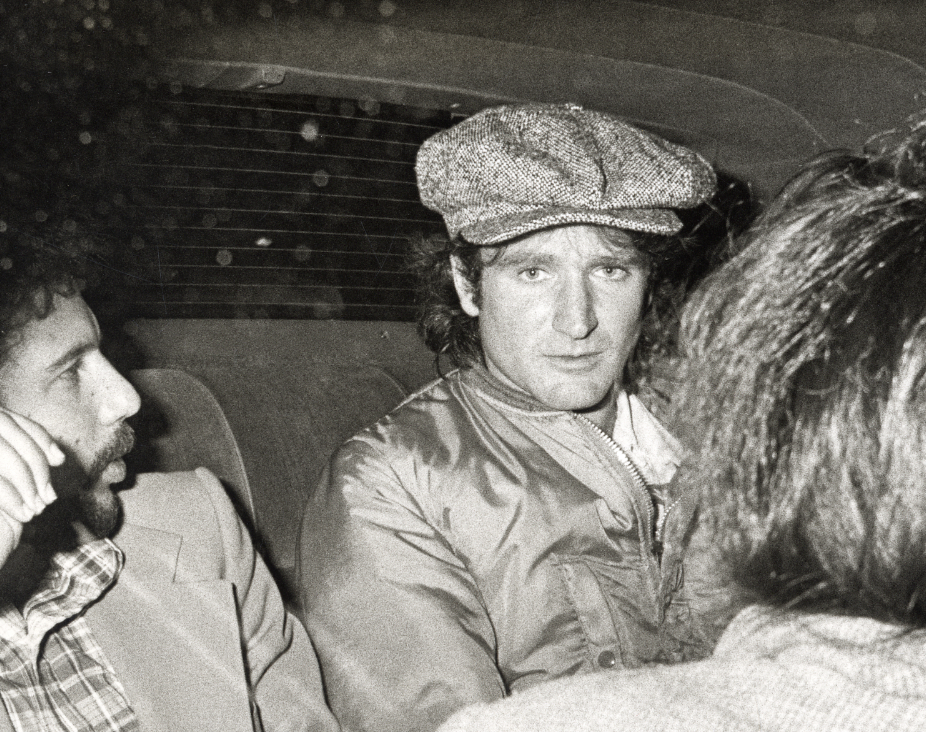
Williams’ challenging childhood — including his earnest efforts to gain his mother’s attention and approval, being a target for bullies, and his profound loneliness in his family home — reportedly laid the foundations for the comedian and actor he eventually became.
While his impeccable talent for improvisation might have started as an intelligent kid’s solution to counter bouts of loneliness, his move to Los Angeles immediately brought him the support, companionship, and fame he needed to establish himself as a comedian.
It wasn’t long before Williams captivated the audience with the many characters, voices, and acts he so brilliantly performed, with a magic trick that only someone who watched him endlessly could decipher completely. With his growing popularity in the late 1970s, the showbiz industry was eager to incorporate his extraordinary talent.
As time passed, Williams built a successful career as an actor and comedian and became a millionaire. In 2012, his net worth was reported at $50 million. But despite his fame and riches, he remained humble, kind, and compassionate.
Perry Marshall, author and marketer, shared a story in 2014 that he reposted with permission from Brian Lord, a man who once wanted to book Williams for an event. Per Lord’s account, the “Mrs. Doubtfire” actor had an astonishing requirement in his rider.
Per William’s request, the company hiring him had to also provide employment opportunities to several homeless individuals during their contractual cooperation. Praising Williams for his beautiful heart and helpful nature, Perry wrote in his caption:
“I wonder how many production companies continued the practice into their next non-Robin Williams project, as well as how many people got a chance at a job and the pride of earning an income, even temporarily, from his actions…Thanks, Robin Williams — not just for laughs, but also for a cool example.”

Another source reported that Robin Williams actively advocated for the employment of homeless individuals, encouraging each production house to hire at least ten people without homes. Over the course of his career, he was believed to have assisted nearly 1520 homeless individuals.
The renowned “Aladdin” star collaborated with fellow actors, including Whoopi Goldberg and Billy Crystal, in a collective effort to improve the lives of the less privileged. Together, they reportedly raised over $70 million for homeless individuals in the United States through the initiative known as Comic Relief.
In a conversation with Whoopi Goldberg in September 2014, Billy Crystal revealed that their joint fundraising venture, initiated in 1986, provided him with the opportunity to deepen his friendship with Robin Williams. Crystal, known for his role in “When Harry Met Sally,” expressed how their collaborative efforts forged a close bond between them.
Beyond his brilliance as an entertainer, Robin Williams was renowned for his humanitarian endeavors and philanthropic spirit, characterized by a deliberate avoidance of recognition or publicity. Pediatrician Carrie Chen, who completed her residency at the University of California, San Francisco, disclosed that Williams made anonymous visits to San Francisco General Hospital every Christmas.
Chen recounted a poignant moment on Christmas Day in 1998 when Williams entered the pediatric ward with toys for all the children. At that time, Chen and her colleagues had just stabilized a premature baby born at 28 weeks. When Williams inquired about the whereabouts of the staff, he was informed that they were busy attending to the newborn.
Upon learning that the infant was in stable condition, Chen recalled Williams entering the room and being moved to tears upon seeing the child thriving. The actor, known for his role in “The Fisher King,” expressed his gratitude to the doctors and nurses for their care on Christmas Day.
Later, Williams visited another ward, surprising each child with a brand-new Nintendo video game set — a popular and considered costly present at the time. Reflecting on the experience, Chen remarked, “I think he just truly wanted to do good. He didn’t care about the publicity. No one knew he was there, he just slipped in. He just wanted to come and give those children a Christmas present.”
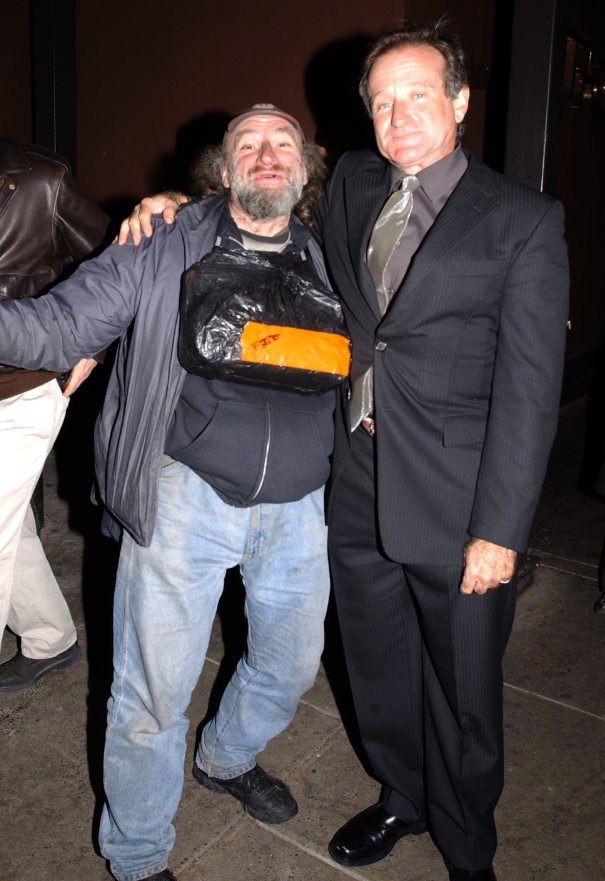
Robin Williams continued to advocate for the underprivileged, actively participating in charitable efforts. In December 2000, he worked with “Habitat For Humanity” to build homes in California. Using his fame, he also highlighted social issues, particularly homelessness, and spoke before a Senate panel in 1990, emphasizing the need to support homeless and impoverished communities.
During his testimony, Williams expressed concern about the national debt and underscored the importance of finding ways to address pressing issues. He used his comedic talent as a tool to draw attention to societal challenges, stating, “You can’t walk over people anymore… I’m trying to address it using the only weapon I have – comedy. This woman addressed it with their heart, and you address it with bills and appropriations.”
Beyond his advocacy work, Williams had the unique ability to bring joy to strangers. Numerous stories surfaced after his passing, showcasing his friendliness and warm-heartedness. One such account shared on Reddit involved a grieving family at a doughnut shop in San Francisco. In the early hours, Williams, also present in the shop, noticed the family’s sorrow and went out of his way to bring a smile to their faces. The Redditor recalled that Williams, without the airs of a celebrity, simply acted as a kind person who wanted to make a positive difference in a difficult moment.
Another touching story on Reddit highlighted Williams’ kindness towards fans. In New York, a Reddit user witnessed Williams graciously interacting with a diverse group of fans, taking pictures and signing autographs. One particular shy man, hesitant to be in the photo, received encouragement from Williams, who posed with him and made the moment memorable. The Redditor, deeply moved by Williams’ genuine kindness, never forgot the encounter and was grateful that the shy man had a special photograph with the “Flubber” actor.
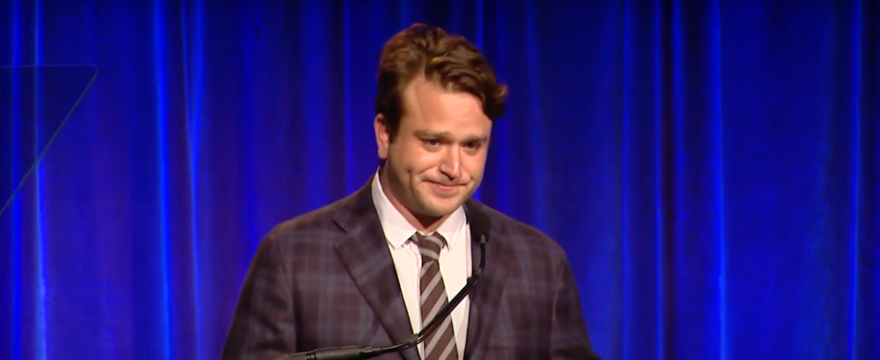
Robin Williams, known for his role in “Man of the Year,” extended his love and care not only to people but also to animals. In 2001, he had a life-changing encounter with a gorilla named “Koko” in California. Koko, who was in mourning after the loss of her lifelong companion Michael, smiled for the first time since the loss when she met Williams. Their interaction, described as that of a father and child, brought Koko out of her mourning, and Williams even incorporated their sweet encounter into one of his acts. When Koko learned about Williams’ passing, she was said to be somber and in mourning, expressing her pain without tears.
Williams’ compassion also extended to his friends and colleagues. Moviemaker Steven Spielberg shared that a weekly 15-minute phone call with Williams during the 25th-anniversary celebration of “Schindler’s List” helped relieve his stress and keep him going.
Williams had a longstanding friendship with “Superman” actor Christopher Reeve, dating back to their time as roommates at The Julliard School in the ’70s. After Reeve’s accident in 1995 that left him quadriplegic, Williams visited him before his critical surgery, bringing laughter and hope to his friend. Following Reeve’s death in 2004, Williams became a board member of the Reeve Foundation, dedicated to spinal cord injury research. This commitment reflected his genuine concern for people’s well-being and served as a tribute to his late friend’s memory.
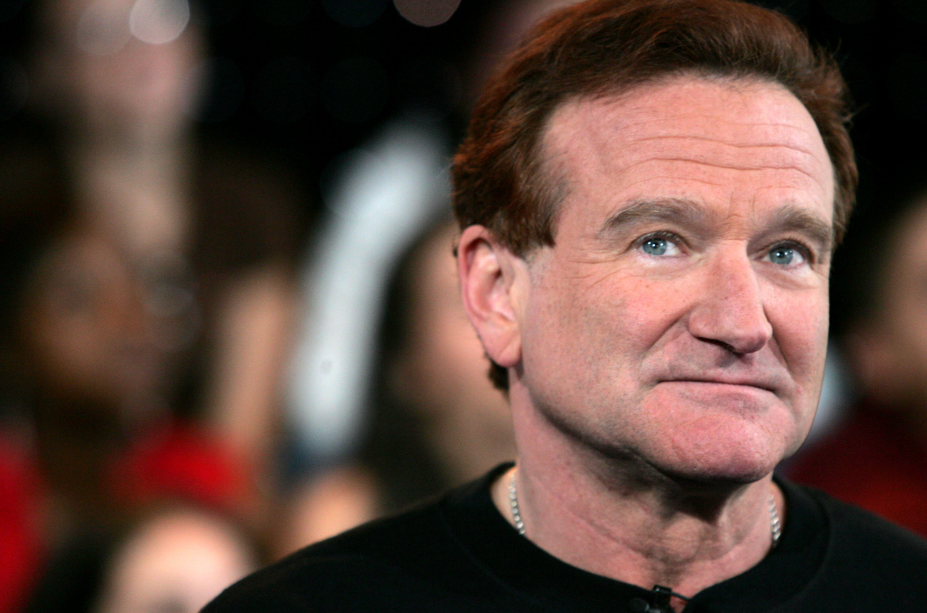
Despite Robin Williams’ tireless efforts to help others, he faced his own struggles with pain and depression. During the shooting of his last on-screen performance in the 2014 movie “Night at the Museum: Secret of the Tomb,” a member of the makeup crew, Cheri Minns, witnessed his daily emotional breakdowns. When she encouraged him to return to stand-up comedy, Williams tearfully admitted that he had forgotten how to be funny. Later, it was revealed that he had been diagnosed with Parkinson’s, an incurable and progressive nervous system disorder.
Peter Asher, a friend of Williams, mentioned that the actor visited him a few months before his passing, expressing unhappiness. Despite the concerns of those around him, including worries about his well-being, Williams continued to struggle with his mental health. On August 11, 2014, at the age of 63, the beloved “Hook” actor was found dead in his Tiburon residence. His assistant discovered him late in the morning, marking the end of a life that had brought laughter and relief to many.
In November 2014, Williams’ son, Zach Williams, reflected on his father’s deep connection with Christopher Reeve. He spoke of their amazing relationship, love, and mutual appreciation, as well as their shared commitment to helping and uplifting those in pain. Zach emphasized how his father and Reeve consistently dedicated themselves to bringing light and healing to situations of darkness, pain, and suffering. Robin Williams’ legacy endures in the hearts of those who were touched by his kindness and love, serving as a reminder of the positive impact one person can have on the lives of many.




